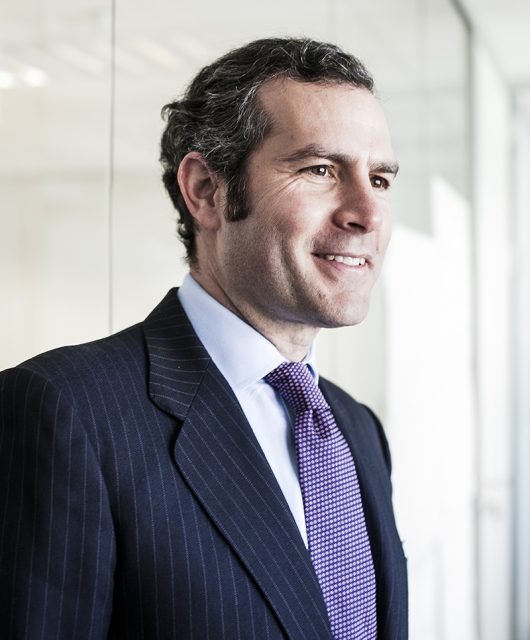By: Will Bosanko, Senior Strategy Consultant, Brandpie

Unless you’ve been living under a rock – or hiding in the metaverse, perhaps – by now you’ll have seen Facebook’s corporate rebrand unveiled late last year. The day we said hello to Meta: a new parent company to house everyone’s favourite social media darlings.
It wasn’t exactly an unexpected move. But it’s one that has caused quite the reaction.
In practical terms, Facebook’s case for change was clear: free the company from the reins of its original product; refocus the corporate strategy; open the door to future diversification or acquisitions; create room for a distinct investor proposition. We saw Google do something similar with Alphabet back in 2015. The strategic rationale was there.
So, for such supposed sense and logic, why did the execution fall so flat? Heated criticism, confusion and continued controversy have followed the announcement. A recent Harris Poll report found that public trust in the company actually dropped a further 5% after the rebrand. What went wrong?
Getting versed in the metaverse
There are a few initial caveats. Change of this magnitude sometimes meets unfair knee-jerk criticism. Many can rush to disregard new names, question new positions, repel revised identities. Large-scale transformation is a waiting game that reaps rewards years down the line.
Making this seem anything other than an SOS mission required a slice of humble pie and a stiff shot of action.
Here though, there’s a little more to the story. Against a tidal wave of controversy, a high-profile whistleblower case, and a global data scandal too recent to forget, something about Facebook’s corporate facelift signalled crisis mode over a coming-to-terms. Aforementioned ex-employee Frances Haugen herself said the timing and tactics of the rebrand “made no sense”.
Making this seem anything other than an SOS mission required a slice of humble pie and a stiff shot of action. It should have been a company demonstrating newfound maturity and becoming more accountable for its influence on society. An evolution towards a more focused, more responsible business outlining clear commitments to change.
Instead, Meta ignored its past and dove head-first into a new raison d’être: to build the metaverse.
“Our company’s vision is to bring the metaverse to life, so we are changing our name to reflect our commitment to this future.” Ah, alright then.
How will these digital spaces foster more positive human connection? What about employees, and the enriching opportunities it might present them? How might this new virtual reality be a force for social or environmental good? For now, your guess is as good as mine. This was a technology-focused goal missing a human counterpart.
The big blue elephant in the room
Of course, Big Tech ambitions need not be entirely divorced from reality.
Look no further than Google, Apple, and Amazon. Behemoth brands often admired as the smartest kids in the classroom. Why? Because no matter what industry-shifting, lifestyle-altering innovation they introduce us to, they strive to keep things simple, accessible, and closely tied to an overarching human benefit.
Whether driven to create products that enrich people’s daily lives, or to make the world’s information accessible and useful to everyone — their reason for being is clear. They are actually fathomable, for one, but even more importantly: they’re innately human. We can understand their purpose and foresee the impact on communities, lives, careers, ways of life. Anyone, anywhere can connect with them.
Though they might try, certain realities can’t – and shouldn’t – be avoided.
Now, this is not to say businesses and their brands must be overly emotional in setting out their path to transform, or focus less on a desired future state. But Meta is avoiding the big blue F’ing elephant in the room. They quite literally have a former employee telling the world that their practices are detrimental to the mental health, wellbeing, and general welfare of society. Though they might try, certain realities can’t – and shouldn’t – be avoided.
Looking ahead
Any form of rebrand, repositioning or strategic reset is an all-eyes-watching transformative moment. Often, the culmination of a process of internal reflection, goal-setting, and decided change. This could have been Meta’s big opportunity to acknowledge the past, and invite former friends back on the journey.
Instead, we saw CEO Mark Zuckerburg interact with an avatar version of himself, float through a virtual universe, and engage in a scripted skit with a robot man. Sure, it’s fun — but perhaps Meta’s 60,000 employees and the disillusioned public might’ve wanted to know how this new company mission would influence improved practices, policies or behaviours.
More is surely to come. One hopes at least.
As we look into 2022, Meta’s successful transformation – or metamorphosis, shall we say? – will rely on its ability to better articulate and activate a meaningful, unifying purpose.
Navigating onward change with purpose would outline to employees, customers, and investors alike why the “next chapter of social connection” matters. It would inspire them to join the collective mission and contribute towards creating more positive impact. Moreover, it could align the creation of the metaverse with a role for its existing portfolio of applications — to build a unified family, rather than outcast them as a set of abandoned naughty children.
None of this can be achieved on Day 1. Nor is it easy. Team Meta are at the beginning of a journey down a winding, multi-year path.
But there’s clearly work that needs to be done right here, right now. Igniting this initiative with a focus on intangible products over real-life people – for a company so frequently challenged for prioritising profit over personal impact – was a tone deaf move. It felt like saving face over spearheading change.
After all, in a world where the metaverse is yet to be understood, Zuckerburg’s biggest opportunity will be to make Meta itself mean something first.





